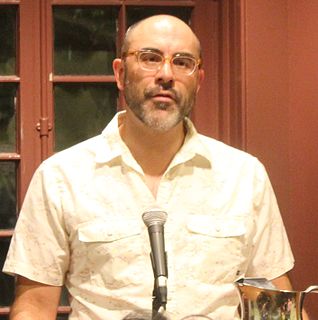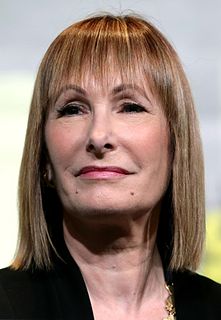Цитата Дж. Роберта Леннона
Не дорожите ничем, будьте готовы выбросить что угодно. История, которую вы только что написали и которой вы гордитесь, не должна нянчиться и преклоняться перед ней. Вы можете сделать это снова. Если бы ваш дом сгорел вместе со всей вашей работой внутри, вы бы по-прежнему были писателем, которым вы являетесь, и продолжали бы чего-то стоить.
Связанные цитаты
Это национальный эквивалент того, что у вас нет сбережений, ваша кредитная карта исчерпана, вы не продлили страховку, и теперь ваш дом сгорел. Единственный способ, с помощью которого мы можем начать решать эту проблему, — отменить снижение налогов для богатых, что позволит сэкономить около 70 миллиардов долларов.
Какой бы публичной ни была ваша работа, это просто отношения с самим собой. И вы должны создать внутри себя маленькое священное пространство, чтобы дорожить этим... потому что, когда вы умрете, это останется с вами. Это то, с чем вы рождаетесь и с чем уходите. Это своего рода история о том, как вы сопровождали себя по жизни.
У меня были свои материалы, адаптированные другими людьми, поэтому я пришел к выводу, что фильм — это форма, отличная от романа, и нет такой вещи, как настоящая адаптация. Вы должны адаптироваться к этой другой вещи и делать это правильно. Но этот голос оригинала каким-то образом все еще должен быть там, и первоначальное намерение все еще должно быть там. Поэтому, если оригинальный сценарист видел фильм, он сказал бы: «Ну, это не то, что я написал, но это то, что я имел в виду». И если вы можете это сделать, я думаю, вы выполнили свою работу сценариста.
Я бы посоветовал стартапам просто не поднимать голову и продолжать строить. Ваш план на случай непредвиденных обстоятельств, если он у вас есть, должен быть основан на том, что вы все еще тратите больше, чем зарабатываете, и у вас все еще нет прямой видимости для этой кривой J. Это самая важная непредвиденная ситуация. Потому что в противном случае вы предаете это уравнение своим соучредителям, инвесторам, сотрудникам и клиентам.
Вы думаете о том, когда вы со своим другом, и вы проводите время со своим другом. А потом ты идешь делать то, что ты делаешь, свою жизнь. Знаешь, а потом ты снова видишь своего друга. Но для нас мы были друзьями, мы были вместе, а потом мы шли на работу, которая снова была нами, поэтому мы всегда были вместе.
Я думаю, нет ничего, что могло бы заменить ваш эмоциональный отклик. Самая большая ошибка, которую я когда-либо совершал в своей жизни, — это когда люди говорили мне: «Ты действительно должен это продюсировать. Это гарантированный успех». Я читал материал и говорил: «Я не понимаю, но ладно, я его спродюсирую». Вы отдаете большую часть своей жизни, время, проведенное с семьей и друзьями, чему-то, чему вы на самом деле не привержены, и это не сработало так, как все говорили, хотя я работал так же усердно.
Когда я ходил в школу и находился под влиянием абстрактного экспрессионизма, я считал, что если у вас есть взаимное взаимопонимание со своей работой, то это будете вы, и это все, что требуется. Это было бы честно, и сердцевина вашей личности проявилась бы, если бы вы откликнулись на положение и контрасты в своей работе.
До того, как я опубликовал свою первую книгу, я какое-то время работал оператором документальных фильмов и свадеб/бар-мицвы, и часть меня до сих пор скорбит о потерянном режиссере, которым я никогда не стану. Работа над документальным фильмом — это практически противоположный художественный процесс написанию: как писатель вы всегда пытаетесь заполнить мир, чтобы он соответствовал вашей истории, но как документалист ваша работа заключается в том, чтобы вырезать историю из мира. Иногда, когда я чувствую себя особенно заблокированным за своим компьютером, я скучаю по дням, когда я мог просто навести камеру на что-нибудь интересное и подождать, чтобы увидеть, что произойдет.







































